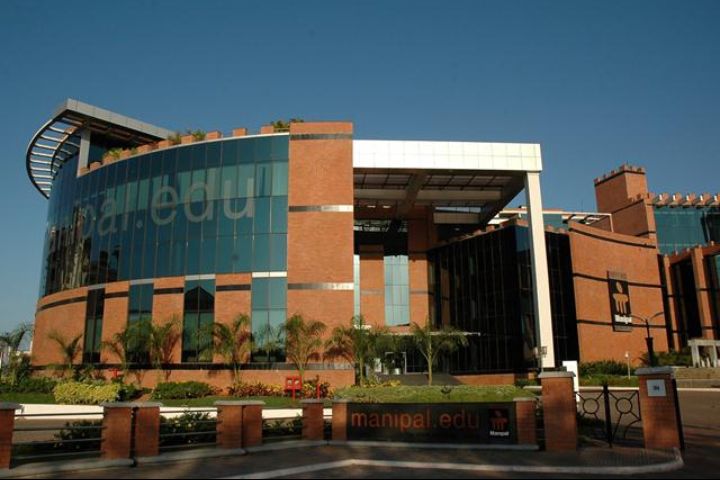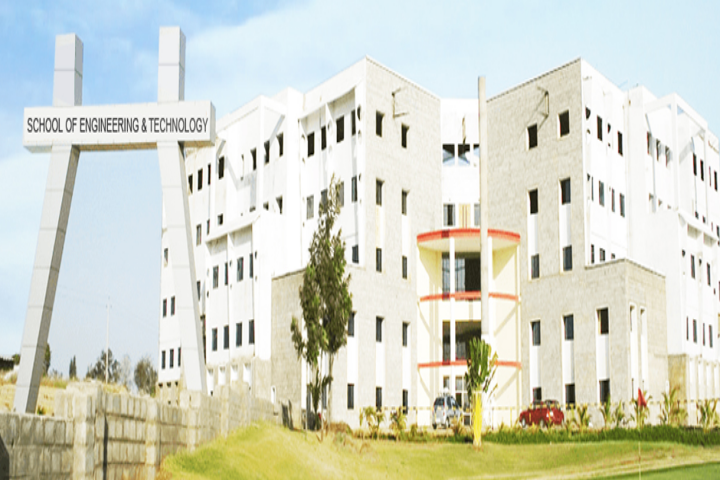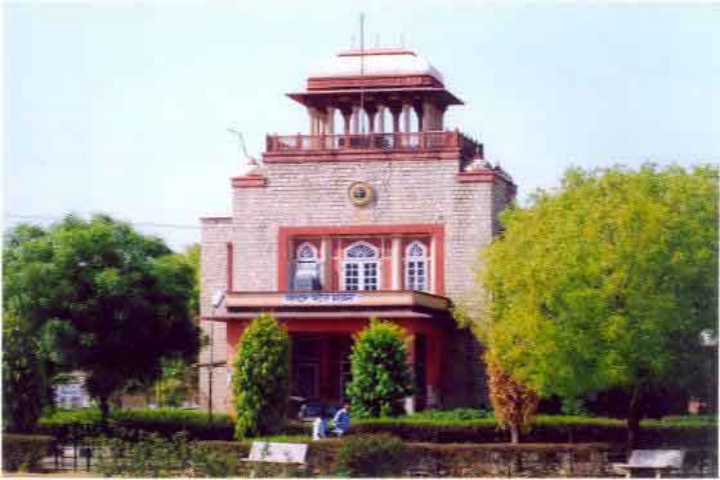
Banking Course Details - Fees, Subjects, Syllabus, Duration, Eligibility, Career Scope
Degrees offered: B.Com, M.Com, P.G.D, MBA, B.Com(Hons)
What is Banking
Banking is a vital sector that manages money, credit, and financial services essential for economic growth. Students can pursue various banking courses in India at undergraduate, postgraduate, and diploma levels to gain professional knowledge of financial systems, regulations, and the functioning of banks in today’s dynamic financial environment.
Through these courses, students learn the principles of banking and finance, including cash flow management, digital transactions, customer services, and financial analysis. The curriculum also focuses on regulatory frameworks, risk management, and the role of banks in supporting businesses and individuals through loans, investments, and other financial products.
More than 130 recognised colleges in India offer comprehensive banking programmes that prepare students for diverse careers in the financial sector. Graduates can work as bank clerks, loan officers, financial analysts, or personal bankers, gaining opportunities in both public and private institutions that contribute significantly to India’s growing economy.
Banking Course Details- Highlights
A banking course offers students an in-depth understanding of financial systems, credit management, and banking operations. It prepares learners with analytical and decision-making skills essential for the finance industry. Below are some of the key highlights of the banking course:
Particulars | Values |
|---|---|
Branch Name | Banking |
Banking Degrees | BBA, B.Voc, B.Com, B.Com ( Hons), PGDM, M.Com, M.Phil, PhD |
Banking Course Duration | UG: 3 years PG: 2 years |
Banking Eligibility Criteria | UG: 10+2 PG: Bachelor’s Degree in a relevant discipline from a recognised institute |
Banking Admission Process | Entrance Examination/ Direct Admission |
Banking Top Entrance Exams | SET, CUET PG, UGAT, NPAT, MAT |
Banking Average Course Fees | Rs. 7,000 to Rs. 19 Lakhs |
Banking Career Options | Bank Clerk, Banking Associate, Personal Banker, and Loan Officer |
Banking Average Salary | Rs. 3.3 LPA |
Banking Top Recruiters | SBI, RBI, Indian Bank, Bank of India, Bank of Baroda, Canara Bank |
Specialisation or Similar Ones
The banking course is a specialised branch of Finance that focuses on areas such as banking principles, financial markets, investment banking, and economics. Students can choose from several related specialisations to develop advanced knowledge and career-oriented skills in the field. Some of the key specialisations include:
Bank Management | Banking and Finance |
Banking and Financial Services | |
Financial Markets |
Top Private Banking Colleges/Universities in India with fees
Private Colleges are known to provide quality education and also offer state-of-the-art infrastructure facilities for students’ convenience and comfort. More than 185 good private colleges and universities are offering Banking courses, some of which are listed in the table below with their NIRF rankings:
| Top Colleges/Universities | NIRF Ranking | Fees |
|---|---|---|
3 | Rs. 1.68 Lakhs | |
62 | Rs. 6.80 Lakhs | |
72 | Rs. 96,000 | |
89 | Rs. 1.95 Lakhs | |
91 | Rs. 19 Lakhs | |
101-150 | - | |
151-200 | - | |
151-200 | Rs. 2.37 Lakhs | |
151-200 | - | |
Shri Shankarlal Sundarbai Shasun Jain College for Women, Chennai | 201-300 | Rs. 2.29 Lakhs |
Note: The fee structure provided above can be for any particular Banking course (Diploma/ Degree/PGD).
Top Government Banking Colleges/Universities in India with fees
Government colleges are comparatively cheaper than private institutes and are well-known for providing exceptional education. In the table below, we have mentioned some of the top government institutes in India that offer Banking courses, along with their fees:
| Top Colleges/Universities | NIRF Ranking | Fees |
|---|---|---|
5 | Rs. 84,000 | |
33 | - | |
35 | - | |
36 | Rs. 32,100 | |
38 | Rs. 1.20 Lakhs | |
43 | - | |
44 | Rs. 7,600 | |
46 | - | |
54 | Rs. 36,100 | |
56 | - |
Eligibility Criteria (UG & PG) of Banking
The eligibility criteria for the course vary depending on the institute. Students can check the same on the official website of the desired institute or on the programme brochure. Generally, for an undergraduate course, the candidate is required to pass their 10+2 grade with a valid score. Similarly, for a postgraduate course, they require a Bachelor’s degree in a relevant discipline.
Banking Eligibility Criteria for UG Courses
To pursue Banking courses at the undergraduate level, candidates need to fulfil the eligibility criteria. Students must also check the specific requirements of each college before applying for admission. Mentioned below are the general eligibility criteria for undergraduate courses in detail.
- Students must complete 10+2 education or equivalent education from a recognised board.
- They must also score a minimum of 50 per cent; it may change depending on the institute. There may be a relaxation in aggregate scores for the candidates belonging to the reserved categories, such as SC/ST/OBC.
- Some institutions may take admission based on the entrance exams.
Top Entrance Exams for UG Courses
There are entrance tests at the national and state levels conducted by different bodies for admission to undergraduate degree banking programmes. Some of the top Entrance Exams are mentioned below:
| Exam Name | Level | Conducting Body | Exam Schedule |
|---|---|---|---|
National | NTA | ||
University | Symbiosis University | ||
University | NMIMS University | - | |
National | AIMA | - |
Banking Eligibility Criteria for PG Courses
Candidates should carefully check and follow the admission process after making sure they meet the eligibility rules for postgraduate courses. It is important to understand the requirements properly to avoid any mistakes during the admission process.
- Students must have a Bachelor’s degree in a relevant discipline from a recognised institute.
- They must score a minimum aggregate score of 50 per cent in the qualifying examinations.
- They must also meet the entrance examination cut-off as specified by the institute to get admission to their desired course.
Top Entrance Exams for PG Courses
There is a top national-level entrance examination conducted by NTA (National Testing Agency) for admission to various master's degree programmes in Banking. The score of the CUET-PG entrance examination is accepted by 47 central universities in India. The details are as follows:
| Exam Name | Level | Conducting Body | Exam Schedule |
|---|---|---|---|
National | NTA |
College Predictors VIEW ALL
Scope of Banking in India and Abroad
In India, the banking sector is experiencing significant growth due to economic development and increased financial literacy. The introduction of digital banking and financial inclusion policies has further expanded the scope of banking. Moreover, the demand for professionals in specialised areas like risk management and investment banking is on the rise.
Internationally, the banking industry offers diverse opportunities. With the advent of FinTech and digital transformations, the demand for skilled banking professionals is increasing. Countries with strong financial hubs like the USA, UK, and Singapore provide ample opportunities for career growth in banking. The scope for international banking professionals is vast and promising.
Course Fees Banking
| Minimum Fees | Maximum Fees | |||
|---|---|---|---|---|
| Private | Government | Private | Government | |
| UG | ||||
| PG | ||||
| DOCTORAL | ||||
| DIPLOMA | ||||
Course Subjects
The course curriculum of the Banking course depends on various factors such as the type of institute and the level of education. Some of the subjects offered in the Banking course and business law. Some of the subjects offered in the Banking courses are Banking Laws, Financial Markets, Marketing of Financial Services, Commercial Bank Management, and Principles of Finance.
Banking Syllabus of UG Courses
Banking courses are offered in various degree programmes at the undergraduate level, such as BBA, BCom, and B.Voc. Some of the common subjects found in the course curriculum are Principles of Accountancy, Financial Accounting, and Banking Law. In the table below, we have mentioned the syllabus from Bharathidasan University.
Semester 1 | Semester 2 |
Principles of Accountancy | Business Tools for Decision Making |
Indian Financial System | Banking Theory, Law and Practice |
Business Management | Business Economics |
Semester 3 | Semester 4 |
Financial Accounting | Credit Management |
Co-Operative Banking | Services Management |
Business Law | Business Communication |
Banking Practices and the Indian Banking System | Rural Banking or Elements of Insurance |
Semester 5 | Semester 6 |
Corporate Accounting | Financial Management |
E-Banking | Income Tax Theory, Law and Practice |
Computer Applications and Banks | Financial Services |
Management Accounting | Foreign Exchange Management or Investment Banking |
Entrepreneurial Development or International Marketing | - |
Banking Syllabus for PG Courses
Banking courses are also offered at the postgraduate level in various degree programmes such as M.Com and PGDM. Some of the subjects are Practical Banking, Rural Banking, Advanced Financial Accounting, Banking Law and Bank Marketing. Mentioned below is the syllabus of the M.Com Banking course from Madurai Kamaraj University:
Semester 1 | Semester 2 |
Financial Markets and Services | Company Law and Corporate Governance |
Advanced Financial Accounting | Marketing Management |
Auditing and Assurance | Financial Management |
Applied Cost Accounting | Entrepreneurial Development and Project Financing |
Banking Technology (E) | Advanced Business Statistics (E) |
Semester 3 | Semester 4 |
Advanced Corporate Accounting and Reporting | Research Methodology |
Project Management | Operations Research / Project |
Strategic and Human Resource Management | Applied Indirect Taxation (E) |
Applied Direct Taxation and E-Filing (E) | Computerised Accounting and Office Automation |
Insurance and Risk Management (NME) | Advanced Management Accounting |
Careers in Banking
A career in banking offers stability, growth, and diverse opportunities for individuals interested in finance and management. Graduates can work in different departments such as customer relations, credit analysis, investment, and operations. The field provides excellent prospects for skill development and professional advancement. Below are some job roles in the banking course:
| Job Roles | Description |
|---|---|
Bank Probationary Officers manage banking operations, assist customers, and handle loan or account-related tasks. They are trained to assume future managerial positions within the bank. | |
Bank Clerks perform data entry, maintain records, and provide customer support. They ensure that daily banking transactions are carried out smoothly and efficiently. | |
Bank Managers | Bank Managers oversee staff performance, customer service, and overall branch operations. They focus on achieving business targets and ensuring financial growth. |
Loan Officers | Loan Officers assess loan applications, verify client details, and explain lending terms. They help customers choose suitable loan options while managing credit risk. |
Financial Analysts examine financial data, prepare reports, and guide investment decisions. They support banks in improving profits and ensuring sound financial planning. |
Upcoming trends
The banking sector in India is witnessing a significant shift with the advent of new trends. The rise of digitisation and digital banking, coupled with the integration of emerging technologies like AI and API, is revolutionising the industry. Additionally, the standardisation of financial systems and the ability to capitalise on technology investments are shaping the future of banking.
Furthermore, banks are transitioning from transactional services to value-driven advisory services, re-imagining customer relationships. This introduction will explore these trends and their potential impact on the banking landscape in India. Some of the upcoming trends in the Banking industry are:
- Generative AI
- Open Banking
- Sustainability and ESG
- Cloud Technology
- Cybersecurity
Certifications for Banking
 Association of Certified Anti-Money Laundering Specialists
Association of Certified Anti-Money Laundering Specialists CAIIB
CAIIB Certified Regulatory Compliance Manager
Certified Regulatory Compliance Manager JAIIB
JAIIBJob Profiles and Top Recruiters
 Bank of Baroda
Bank of Baroda State Bank of India
State Bank of IndiaStudents who complete banking courses can find many job opportunities in public and private banks. These jobs offer good growth opportunities, stability, and attractive career benefits. With knowledge of finance, loans, and banking services, graduates can work in different roles. Below are some top recruiters for banking graduates:
Top Recruiters
- State Bank of India (SBI)
- Reserve Bank of India (RBI)
- Bank of Baroda
- ICICI Bank
- HDFC Bank
- Canara Bank
- Indian Bank
Average Salary
The average salary of a Banking course graduate depends on many factors, such as the company's location, the type of bank, the job profile the candidate applies for, and the candidate's skills and experience. Mentioned below are the salaries of some of the top career options in Banking:
| Job Roles | Average Salary (LPA) |
|---|---|
Bank Probationary Officer | Rs. 8.6 LPA |
Bank Clerk | Rs. 3.3 LPA |
Bank Manager | Rs. 8.9 LPA |
Loan Officer | Rs. 2.8 LPA |
Financial Analyst | Rs. 6.4 LPA |
Source: AmbitionBox
Required Skillset for Banking
Banking is a field that requires dedication and hard work; therefore, candidates need to have certain skills to do well in this field. Mentioned below are the skills required by the candidates in the field of Banking:
- Good Communication Skills
- Sales and Negotiation
- Mathematical Skills
- Logical Skills
- Financial Aptitude
- Analytical Thinking
Course Curriculum for Banking
The course curriculum of banking primarily focuses on imparting knowledge about the financial sector and its functioning. It includes subjects like Financial Management, Commercial Bank Management, and International Banking and Forex Management. Students learn about banking laws, operations, and practices.
In addition, the curriculum also covers areas like investment banking, risk management, and insurance. It aims to equip students with the necessary skills to understand and solve problems related to banking and financial markets. This comprehensive curriculum prepares students for a wide range of roles in the banking sector.
Popular Banking Entrance Exams in India
Frequently Asked Questions (FAQs)
Question: What are some top recruiting companies and Banks hiring graduates?
Answer :
Some of the top recruiters are SBI, RBI, Indian Bank, Bank of Baroda, and Canara Bank.
Question: What is the duration of Banking courses?
Answer :
The duration of a Banking course depends on the level of education. An undergraduate degree in Banking is generally for three years, and a postgraduate degree is for two years.
Question: What are the degrees offered in Banking courses?
Answer :
There are many degrees offered in the field of Banking such as BBA, B.Com, PGDM, and M.Com. Candidates are advised to check the eligibility criteria and the admission process of the desired degree programme in Banking.
Question: What are some necessary skills that the candidates must have to do well in a Banking career?
Answer :
There are certain skills that the candidates must possess to perform well both academically and professionally in the field of Banking such as Good Communication skills, Sales and Negotiation, Logical Skills, Financial Aptitude, and Analytical Thinking.
Question: What are the upcoming trends in the field of Banking?
Answer :
Some of the upcoming trends and topics in the Banking industry are Generative AI, Open Banking, Sustainability and ESG, Cloud Technology, and Cybersecurity.
Question: Who is eligible for the Banking course?
Answer :
For an undergraduate course in Banking, the candidates need to have cleared their 10+2 education with a valid aggregate score. For a postgraduate course, they need to complete a Bachelor's degree in Banking or a related discipline with a valid minimum percentage score.
Question: What are the most popular career options in the field of Banking?
Answer :
There are many career options in the field of Banking; some of the top career options are Probationary Officer, Bank Clerk, Bank Manager, Loan Officer, and Financial Analyst.
Question: What is the average salary of a Banking graduate?
Answer :
The salary depends on many factors such as the location of the company, the education and experience of the candidate, and the job profile applied for by the candidate. The average salary is around Rs. 8.9 LPA.
Question: What are the average course fees of a Banking course?
Answer :
The average course fees depend on the type of institution and the level of education. The average fee ranges from Rs. 7,000 to Rs. 19 lakhs.
Question: What are the entrance examinations in the field of Banking?
Answer :
There are numerous banking entrance exams. Some of the most popular ones are SET, CUET UG, CUET PG, and NPAT.
Questions related to Banking
is there any online course for banking law and practice
Hello,
Yes, there are online courses available for Banking Law and Practice. You can find structured programs offered by universities, colleges, and even banking institutions that cover the legal framework, compliance, and practical aspects of banking operations.
You can access all details from mentioned link below:
https://www.careers360.com/courses/banking-law-course
Hope it helps.
Aaj ke prachilt shiksha kshetra ke tahat me commerce stream se hu to mujhe kya karna chahiye graduation me bba ya bcom, agar me bba karti hu to management ayega , agar me bcom karti hu to finance, par mera aim kah sakte hai ki banking sector hai to mujhe karna chahiye ? Please suggest me
Hello,
If your aim is the banking sector , then B.Com is the better option for you.
Reasons:
-
Banking jobs need strong knowledge of accounts, finance, economics, and maths .
-
B.Com gives you direct understanding of these subjects.
-
Banking exams like IBPS, SBI, RBI are easier after B.Com because the
If u have rt in chemistry in class 12 boards in 2022 and overall result are pass and will get a addmission in private college in bsc biology now u are graduate so u can give upsc and banking exam with that degree
HELLO,
Yes, if you have a BSc Biology degree form private college , then you are eligible to appear for the UPSC Civil services exam and most competitive banking exams , provides you meet the other standard eligibility criteria such as age and nationality.
The RT in chemistry in your
Hi, Im currently in ISC class 11, commerce without maths, can i enter the world of high finance? Like investment banking or private equity? Im not considering hedge funds, because they prefer Physics majors. If yes, can I enter through CA or MBA?
Hello
Yes, you can enter high finance like investment banking or private equity, but it will be challenging without maths.
Commerce without maths puts you at a disadvantage, so you will need to build strong analytical skills on your own.
Becoming a CA is a powerful option, as many investment
Hello everyone Im Neha i graduated in the year 2015 in bsc mpcs and pg in physic specialization in 2017 . After then I didnt do anything because of personal reasons. But after 8 years of career gap. Now I want to start my career but I dont want any IT job field Suggest me any non IT field jobs and courses that would help me. I prefer finance or pvt. Banking jobs. Tell me the courses to learn and jobs
Hey Neha!
Since you’ve got a BSc in MPCS (Mathematics, Physics, Computer Science) and a postgraduate degree in Physics with a specialization from 2017, you’ve got a lot of exciting paths ahead of you, depending on what you want to do. If research or teaching sparks your interest, you might














 Answer later
Answer later









